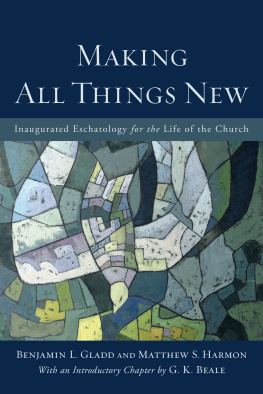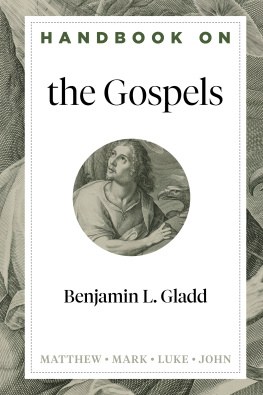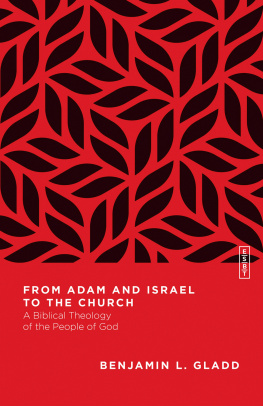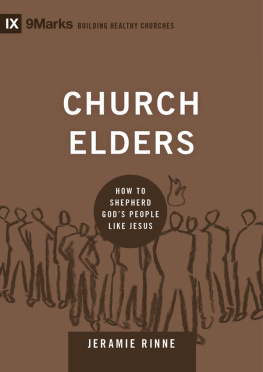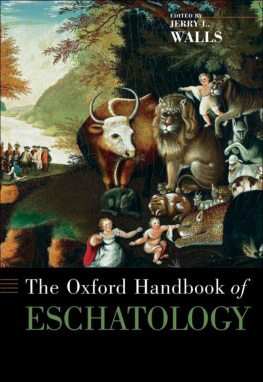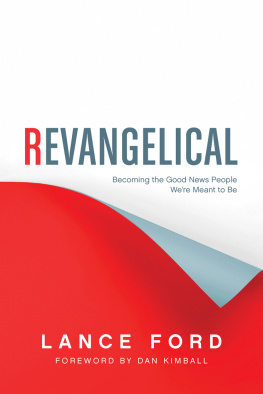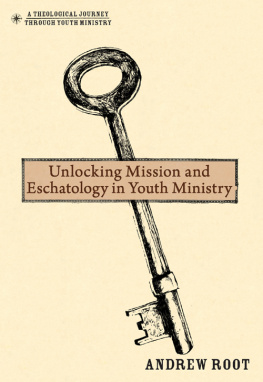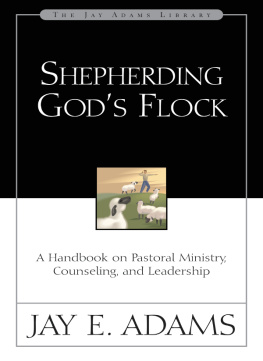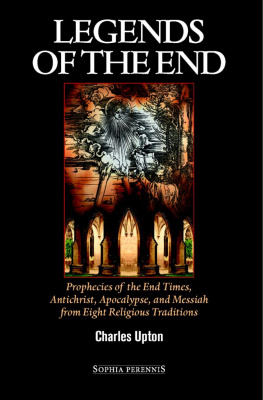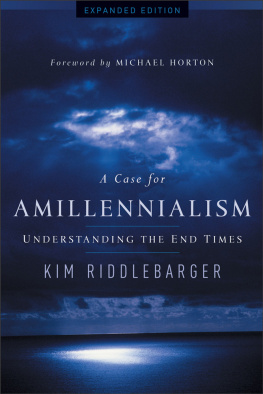Benjamin L. Gladd - Making All Things New: Inaugurated Eschatology for the Life of the Church
Here you can read online Benjamin L. Gladd - Making All Things New: Inaugurated Eschatology for the Life of the Church full text of the book (entire story) in english for free. Download pdf and epub, get meaning, cover and reviews about this ebook. year: 2016, publisher: Baker Publishing Group, genre: Religion. Description of the work, (preface) as well as reviews are available. Best literature library LitArk.com created for fans of good reading and offers a wide selection of genres:
Romance novel
Science fiction
Adventure
Detective
Science
History
Home and family
Prose
Art
Politics
Computer
Non-fiction
Religion
Business
Children
Humor
Choose a favorite category and find really read worthwhile books. Enjoy immersion in the world of imagination, feel the emotions of the characters or learn something new for yourself, make an fascinating discovery.
- Book:Making All Things New: Inaugurated Eschatology for the Life of the Church
- Author:
- Publisher:Baker Publishing Group
- Genre:
- Year:2016
- Rating:5 / 5
- Favourites:Add to favourites
- Your mark:
- 100
- 1
- 2
- 3
- 4
- 5
Making All Things New: Inaugurated Eschatology for the Life of the Church: summary, description and annotation
We offer to read an annotation, description, summary or preface (depends on what the author of the book "Making All Things New: Inaugurated Eschatology for the Life of the Church" wrote himself). If you haven't found the necessary information about the book — write in the comments, we will try to find it.
Making All Things New: Inaugurated Eschatology for the Life of the Church — read online for free the complete book (whole text) full work
Below is the text of the book, divided by pages. System saving the place of the last page read, allows you to conveniently read the book "Making All Things New: Inaugurated Eschatology for the Life of the Church" online for free, without having to search again every time where you left off. Put a bookmark, and you can go to the page where you finished reading at any time.
Font size:
Interval:
Bookmark:

2016 by Benjamin L. Gladd and Matthew S. Harmon
Published by Baker Academic
a division of Baker Publishing Group
P.O. Box 6287, Grand Rapids, MI 49516-6287
www.bakeracademic.com
Ebook edition created 2016
All rights reserved. No part of this publication may be reproduced, stored in a retrieval system, or transmitted in any form or by any meansfor example, electronic, photocopy, recordingwithout the prior written permission of the publisher. The only exception is brief quotations in printed reviews.
Library of Congress Cataloging-in-Publication Data is on file at the Library of Congress, Washington, DC.
ISBN 978-1-4934-0240-3
Unless otherwise indicated, all Scripture quotations in chapter 1 are the authors translation.
For all other chapters, unless otherwise indicated, Scripture quotations are from The Holy Bible, English Standard Version (ESV), copyright 2001 by Crossway, a publishing ministry of Good News Publishers. Used by permission. All rights reserved. ESV Text Edition: 2011
Scripture quotations labeled AT are the authors translation.
Scripture quotations labeled NASB are from the New American Standard Bible, copyright 1960, 1962, 1963, 1968, 1971, 1972, 1973, 1975, 1977, 1995 by The Lockman Foundation. Used by permission.
Scripture quotations labeled NETS are from A New English Translation of the Septuagint , 2007 by the International Organization for Septuagint and Cognate Studies, Inc. Used by permission of Oxford University Press. All rights reserved.
Scripture quotations labeled NIV are from the Holy Bible, New International Version. NIV. Copyright 1973, 1978, 1984, 2011 by Biblica, Inc. Used by permission of Zondervan. All rights reserved worldwide. www.zondervan. com
In what amounts to a carefully guided tour of biblical theology for the church, Gladd and Harmon offer a biblically thick description of Scriptures redemptive narrative. Writing in careful scholarly detail yet in an accessible manner that never loses sight of the big picture, Gladd and Harmon exhort the church and its pastoral leadership to be the end-time people of God, encouraging them to recognize their place within Scriptures redemptive storyline. A very helpful combination of scholarly precision and pastoral sensitivity.
Darian Lockett , Talbot School of Theology, Biola University
Making All Things New is a clear and helpful guide that will enable all Christians to understand why inaugurated eschatology is not just something for the seminary classroom but a doctrine to be lived out and rejoiced in. Gladd and Harmon have done us a great service by demonstrating in a compelling way why eschatology matters in the life of the church. Anyone who is serious about understanding one of the most important aspects of the New Testament ought to read and apply this book.
Chris Bruno , author of The Whole Story of the Bible in 16 Verses
Gladd and Harmon apply to pastoral ministry the inaugurated eschatology they learned from Greg Beale. The book repeatedly moves from sound exegesis to theology to application.
Andy Naselli , Bethlehem College and Seminary, Minneapolis
What a marvelous book! Gladd and Harmon team up to explore the interface between inaugurated eschatology and pastoral ministry. This book will serve as an excellent resource not only for those training for ministry but for those slogging it out in ministry and looking to reinvigorate their understanding of ministry as an end-time event among Gods people. Gladd and Harmon have achieved the rare feat of writing a book that is both substantive and useful, insightful and practical, scholarly and churchlya model of what I would call ecclesial theology. I recommend it highly!
Todd Wilson , senior pastor, Calvary Memorial Church
To our students
past, present, and future
who are called to lead Gods people
in the latter days
Cover
Title Page
Copyright Page iv
Endorsements
Dedication
Preface
Acknowledgments
Abbreviations
Part 1: Theological Foundation: Grasping the AlreadyNot Yet
1. The End Starts at the Beginning, G. K. Beale
2. The Nature of the End-Time Church
3. Life in the Overlap of the Ages
Part 2: Pastoral Leadership: Leading Gods End-Time Flock in the AlreadyNot Yet
4. Feeding the Flock
5. Guarding the Flock
6. Guiding the Flock
Part 3: End-Time Ministry: Service in the Latter-Day Temple of God
7. Worship: Celebrating the Inaugurated New Covenant
8. Prayer: Pleading for the Consummation of the New-Creational Kingdom
9. Missions: Extending Gods Eschatological Presence to the Ends of the Earth
Conclusion
Bibliography
Author Index
Scripture and Ancient Sources Index
Back Cover
This is not your ordinary book on eschatology. Usually when people hear that term, they think of the events connected to the future return of Jesus Christ and the very end of history. As a result, topics such as the rapture, the tribulation, and the millennium take center stage. Such an approach is often reinforced by systematic theology textbooks, which usually treat eschatology as a separate chapter focusing on these issues. But we believe that this understanding of eschatology is too narrow when it comes to what the Bible teaches.
Our English term eschatology comes from two Greek words: eschatos (last) and logos (word). So, eschatology is the study of the last things. But as we will try to demonstrate, eschatology is not limited to the events connected to the return of Jesus Christ. According to the NT, the life, ministry, death, resurrection, and ascension of Jesus have ushered in the latter days, as promised in the OT. Therefore, the latter days encompass the entire time period between the first and second comings of Christ. As a result, eschatology is not limited to the last chapter of what God will do in this world but rather frames all that God has done and will do in Jesus Christ.
Among biblical scholars and theologians this understanding has come to be known as inaugurated eschatology. The word inaugurated reflects the observation that while the latter-day new-creational kingdom has begun with the work of Jesus, it has not yet been consummated in all its fullness. Another way of referring to this phenomenon is to use the expression alreadynot yet. Gods kingdom has already found its initial fulfillment in and through Jesus Christ, the outpouring of the Spirit, and the formation of the eschatological people of God. But the kingdom has not yet been realized in all its fullness. Stated differently, Gods promises have found their initial fulfillment while still awaiting their complete and final consummation.
This understanding of eschatology has been widely recognized and embraced within the academic study of the NT, but it has yet to make a significant and widespread impact on the life of the church. In the pages that follow, we attempt to explain how the alreadynot yet framework informs our understanding of the life and ministry of the church. While we believe that all Christians can benefit from this book, our focus is on pastors and those aspiring to be in the pastorate. As leaders of the church, they set the tone for how the congregation should live as the people of God. We have not tried to provide a complete picture of pastoral ministry or interact with the many helpful books on the subject. Instead, our goal is to explain how understanding and applying the alreadynot yet perspective significantly enriches several key aspects of the life and ministry of the church. It is not our intention to provide all the answers (not that we have them!) but to start a conversation about how inaugurated eschatology enhances pastoral ministry.
Font size:
Interval:
Bookmark:
Similar books «Making All Things New: Inaugurated Eschatology for the Life of the Church»
Look at similar books to Making All Things New: Inaugurated Eschatology for the Life of the Church. We have selected literature similar in name and meaning in the hope of providing readers with more options to find new, interesting, not yet read works.
Discussion, reviews of the book Making All Things New: Inaugurated Eschatology for the Life of the Church and just readers' own opinions. Leave your comments, write what you think about the work, its meaning or the main characters. Specify what exactly you liked and what you didn't like, and why you think so.

